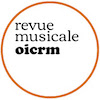Appel de conférences pour le colloque « A Critical Reappraisal of Stephen C. Foster on His 200th Birthday », Université de Pittsburgh et en ligne, 20-21 mai 2024.
« Stephen Collins Foster’s birth on July 4, 1826—the fiftieth anniversary of the signing of the American Declaration of Independence and the first national celebration of Independence Day—provided the composer’s family with an irresistible historical coincidence. In the 1890s, thirty years after his death, they began positioning him as the “father of American music” and a symbol of a new chapter in US history marked by the nation’s cultural maturation. Working as gatekeepers of Foster’s memory, the family curated an “archive” of primary sources pertaining to Foster’s life to fit their agenda. At the same time, classical composers began relying on Foster’s music as the foundation for a national style, new generations of professional and amateur performers embraced his songs, monuments were erected to celebrate his music as a symbol of democracy, and his songs became embedded within Lost Cause propaganda about the American Civil War.
Early Foster biographers offered his “plantation” songs as nostalgia for the Old South and as formative for the sounds of the broader United States. To this day, scholars seldom treat the shared territory of the nation’s two exceptionalisms: an American exceptionalism asserting a manifest destiny of global leadership, and a Southern exceptionalism that quarantines a region within the nation to scapegoat its vices and play foil to its preferred provincial narratives. Rarely do scholars turn a critical eye toward the agendas that shaped the Foster archive, often wielding the collection’s sources in ways that perpetuate mythologies about popular culture, race, and the creative industries in our collective memory. Cultural historians have not shied away from applying a critical lens to the history and effects of blackface minstrelsy. Yet few scholars have chipped away at the praise-filled narratives that circulate around the genre’s most famous composer. Two hundred years after his birth, there remains much work to be done in understanding Foster’s place within national myths.
This CFP seeks submissions for a hybrid symposium to be held on May 20-21, 2024, hosted by the University of Pittsburgh Library System’s Center for American Music. Accepted papers will be eligible for revision and submission to an edited volume.
Proposals are due October 1, 2023, and completed chapter drafts are due December 15, 2023.
Send proposals and questions to Jason Guthrie (JasonGuthrie -at- clayton.edu) and Jennie Lightweis-Goff (jlg -at- olemiss.edu). »

